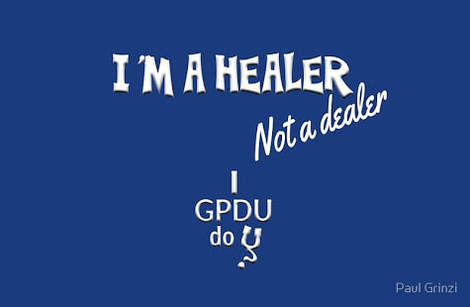|
GPDU18 – Proving we’re better together!
Dr Ayman Shenouda GPs Down Under There was plenty of discussion about collaboration at the recent GPDU18 inaugural conference on the Gold Coast. This was collegiality at its best and perhaps not surprising given we know that flat hierarchies are where innovation and collaboration will thrive the most. GPDU offers healthy debate which is open and inclusive with all members encouraged to moderate. There is very little censorship here provided you remain on topic – GP learning, peer support, and advocacy. Enabling an inclusive dialogue is why this Facebook community of over 5000 members exists and thrives. It provides the opportunity for real-time online discussion in a forum for GPs - one that is free from corporate vetting offering a rare open communication channel. Better collaboration If there was one clear connect from this conference it was that we need better collaboration. Collaboration creates value in communities. It is about sharing vulnerabilities and being open and being brave enough to distribute your power to many. For GPDU18, day one great debate certainly focused on a rather divisive topic: ‘The Three, Two, One Debate (how many colleges is too many?) which saw an overwhelming yes (79%) for a single united college. Panelists’ Drs Cameron Loy, Fiona McKinnon, and Liza Lack in this session provided either the for or against – one, two or three (college) - noting they didn’t get to choose which side they were on. They each worked through issues including what a college should be doing for their members and more broadly about their values. There was also a discussion during conference on tribalism and the stages of tribal culture led by Dr Edwin Kruys. Based on the work by Logan, King, and Wright in their bestseller Tribal Leadership which takes you through the five kinds of tribes that humans naturally form and the benefit of establishing triadic relationships. It was a timely and interesting reflection allowing us to turn our attention towards building the culture we want. You could sum up both sessions in three words - we’re better together! Building the culture, we want In building the culture we want, it is important to understand why tribes exist. This is really important as an understanding of tribalism is a key strategy for improving collaboration. And, certainly on both topics – one college and that of tribalism - I really don’t think these issues are necessarily separate. Collaboration begins with organisational culture and we are all seeking a more collaborative approach and there were plenty of lessons to take home here. While I doubt the vision for a single college will ever be realised, I think what we certainly do need is more coalition building. This is what GPDU does really well and why it works. It forms coalitions with those holding similar values, interests, and goals to combine expertise and resources for a common purpose. Primary care and collaboration In a past blog about the possibilities of having a united front in primary care and the need to find some common ground, we established that for collaboration to work then this relies on respect and trust. A lack of trust only stifles collaboration. We need to create a shared vision of the future and move towards it together. Have an agreed common goal and sign up for it. In a more recent blog, we discussed ways to position ourselves as leaders of primary care into the future and the idea of a College for Primary Care. Getting back to our value proposition to achieve integration as well as satisfy funders positioning ourselves together in the health system will be important. This is key to ensuring we make the shifts towards a health care system based on wellness rather than the treatment of illness. Collaborative healthcare leadership We need a focus on positioning ourselves together to advance primary care reform and to help orchestrate a collaborative culture. Formalising this structure more would create a work culture that values collaboration. It would help us to put in place the adaptive collaborative learning systems required for the future. For me, GPDU18 just proved that we’re better together and certainly the key themes that emerged particularly around collaboration reinforced a need for a stronger focus around this. Building trust and blurring traditional boundaries will help end tribalism and silos – it would help bring the ‘we’ (as in the primary care team) instead of ‘me’ (the GP) back into focus. Our sector needs to find a place for more inclusive reform and opportunities for collaboration through communities like GPDU. Working together towards a common agenda is the only way we will see the sector-wide change required. Improving health value in the healthcare system starts with us and it’s time to reconnect.
0 Comments
Leave a Reply. |
Author
Dr Ayman Shenouda Blogs categories
All
|

